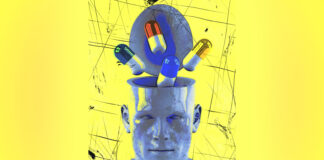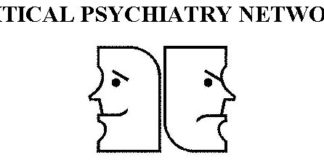Tag: critical psychiatry
Thomas Szasz Versus the Mental Health Movement
Unbiased experts must examine the claims and research of psychiatry and issue a report as to whether psychiatry not only has a valid medical basis, but whether this basis justifies the widespread violation of medical ethics and the routine use of imprisonment and torture.
Top 10 Myths About the Critics of Psychiatry
Service-users' experience was at the heart of everything the critics spoke about, as well as the importance of relying on the most up-to-date and accurate evidence.
Why Is Psychiatry So Defensive About Criticism?
Although I disagree with much of Dr. Aftab's article, it is, nevertheless, a courageous piece of writing. He calls out many of psychiatry's contradictions and errors.
Psychiatry Is the Cause, Not the Solution
I have found that trauma is frequently at the root of many eventual psychological and medical issues. Medications often only worsen the disconnection caused by trauma.
Is Anti-Psychiatry Harmful?
The notion that one can help a despondent person by giving him or her mood-altering drugs, while systematically ignoring the reason for his/her despondency is a travesty of a helping profession.
Celebrating the Anti-Psychiatry Movement
We are winning this battle. And I use the word battle with no apologies or misgivings. Psychiatry has been utterly unreceptive to the concerns of our movement.
Out of the Bubble: Now or Never?
Never in human history did a powerful institution, no matter how harmful and corrupt, slide into self-inflicted irrelevancy. Institutions like the current psychiatric system can only be toppled by a powerful social movement.
Insane Medicine, Chapter 2: The Scientism of Psychiatry (Part 1)
Wherever you find mental health services to have expanded, you find a parallel increase in the numbers who have been classed as disabled due to a mental health disorder.
A Conversation with Nev Jones
A dialogue between Nev Jones and Sandy Steingard about Mad in America, critics of psychiatry, medication for psychosis, Open Dialogue, and the need for racial and class justice.
VICE, MIA and The Movement Against Psychiatry
The Vice article was presented as an exploration of the “movement against psychiatry,” and yet you can see, once it is deconstructed, how it told a story that surely pleased the promoters of the conventional narrative, and put the “critics” on the defensive at almost every turn.
Instrument of the Machine No More
Early in my social work career, I truly believed that medication and forced confinement helped heal “mental illness.” Then an abrupt awakening completely altered my worldview.
The Most Dangerous Thing You Will Ever Do
I am a psychiatrist and I have been watching my profession deteriorate for many decades. This is my most direct written statement about the dangers of stepping inside a modern psychiatrist’s office. My conclusions are the culmination of mountains of research authored by me and by an increasing number of other psychiatrists, scientists and journalists.
Can a Conceptual Competence Curriculum Bring Humility to Psychiatry?
Training for conceptual competence in psychiatry provides a new way forward to address theoretical and philosophical issues in mental health research and practice.
The Matrix: Disentangling Anti-Psychiatry
For the last forty years, psychiatry has been comprehensively critiqued from a myriad of disciplines including sociology, psychology, and the user movement. Is there anything that can be salvaged from the psychiatry project? How would a psychiatrist practice ethically in such a nefarious environment?
Toward a Critical Self-Reflective Psychiatry: An Interview with Pat Bracken
MIA’s Justin Karter interviews critical psychiatrist and philosopher Pat Bracken about the necessity of challenging received wisdom.
Founding Member Looks Back on 20 Years of the Critical Psychiatry...
Founding member of the Critical Psychiatry Network (CPN), psychiatrist Duncan B. Double, reviews the past 20 years of the Critical Psychiatry Network in an editorial published in the British Journal of Psychiatry.
Philosophers Challenge Psychiatry and its Search for Mechanisms of Disorder
Attempting to locate the mechanisms of psychiatric disorder is a step in the wrong direction and fails to challenge potentially unjust social practices.
Anatomy of a Psychiatrist
An interview with Dr. Sandy Steingard, Medical Director at Howard Center and Clinical Associate Professor of Psychiatry at the College of Medicine of the University of Vermont. Dr. Steingard serves as Board Chair of the Foundation for Excellence in Mental Health Care and is editor of the book 'Critical Psychiatry, Controversies and Clinical Implications' due in 2019.
Minimal Evidence for Disruptive Mood Dysregulation Disorder in Childhood
Researchers offer a critical take on the inclusion of the Disruptive Mood Dysregulation Disorder in the DSM-V.
Questioning the Philosophical Assumptions of Neuroscience Research
Are philosophical misunderstandings behind the failure of neuroscience to provide useful clinical research?
Differences Within Critical Psychiatry
In this blog post for Critical Psychiatry, Duncan Double highlights three main areas of disagreement among critical psychiatrists: whether psychiatry should be seen as a medical...
Critical Psychiatry Network 2017 Conference Report
From Critical Psychiatry: The Critical Psychiatry Network's 2017 conference raised a variety of issues and featured a range of differing perspectives pertaining to the societal...
Is Schizophrenia Associated with Brain Volume Changes Independently of Medication?
Duncan Double, on his Critical Psychiatry blog, published a series of posts exploring the effects of antipsychotics on brain volume and the contention that...
What’s the Harm in Taking an Antidepressant?
We know that all drugs have side effects. That’s just part of the deal right? But is it really possible that an antidepressant can cause a sane person to act like a cold-blooded criminal?
Call For Abstracts: Philosophical Perspectives on Critical Psychiatry
The Association for Advancement in Philosophy and Psychiatry is issuing a call for abstracts, with a particular interest in submissions from service users. The...

































